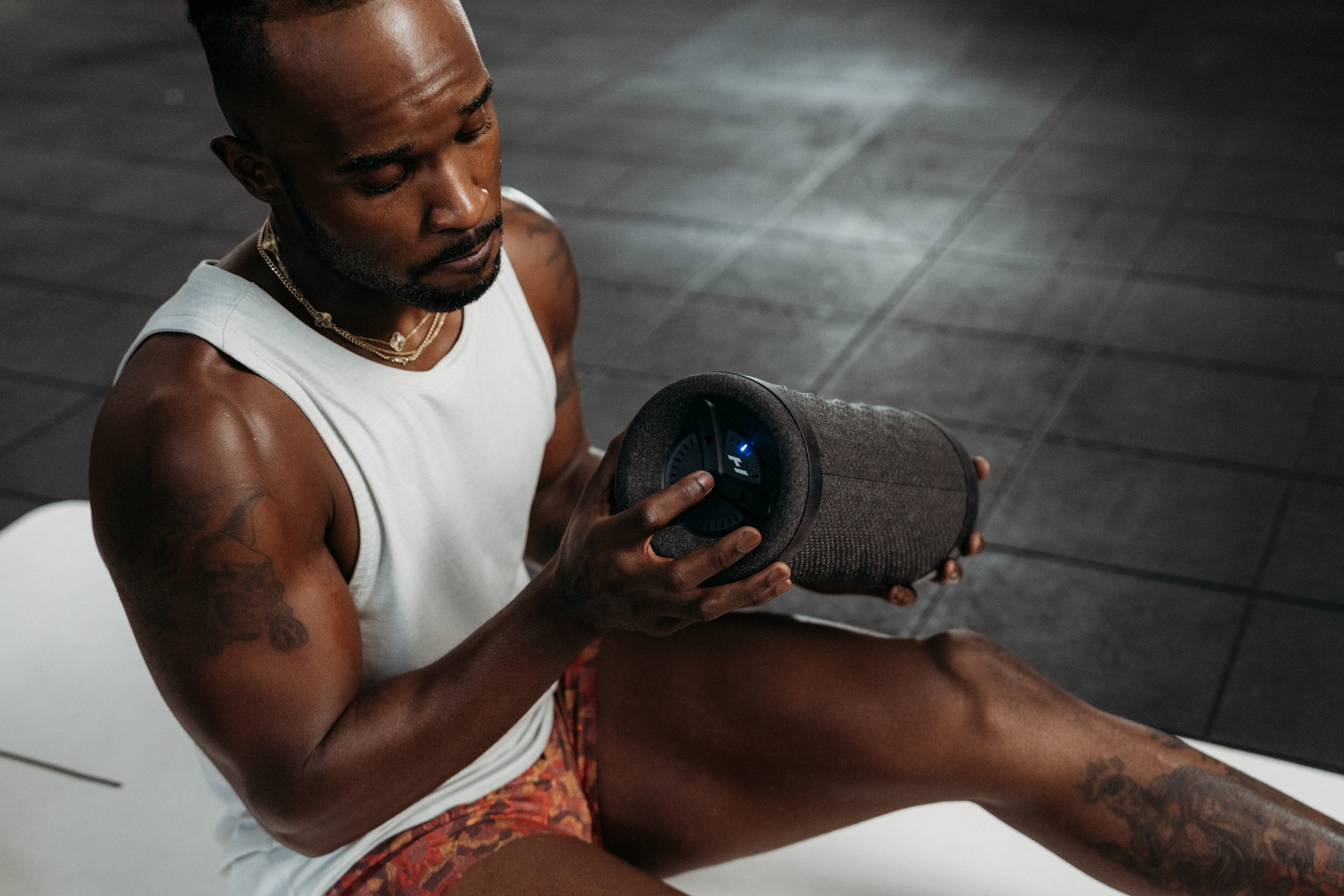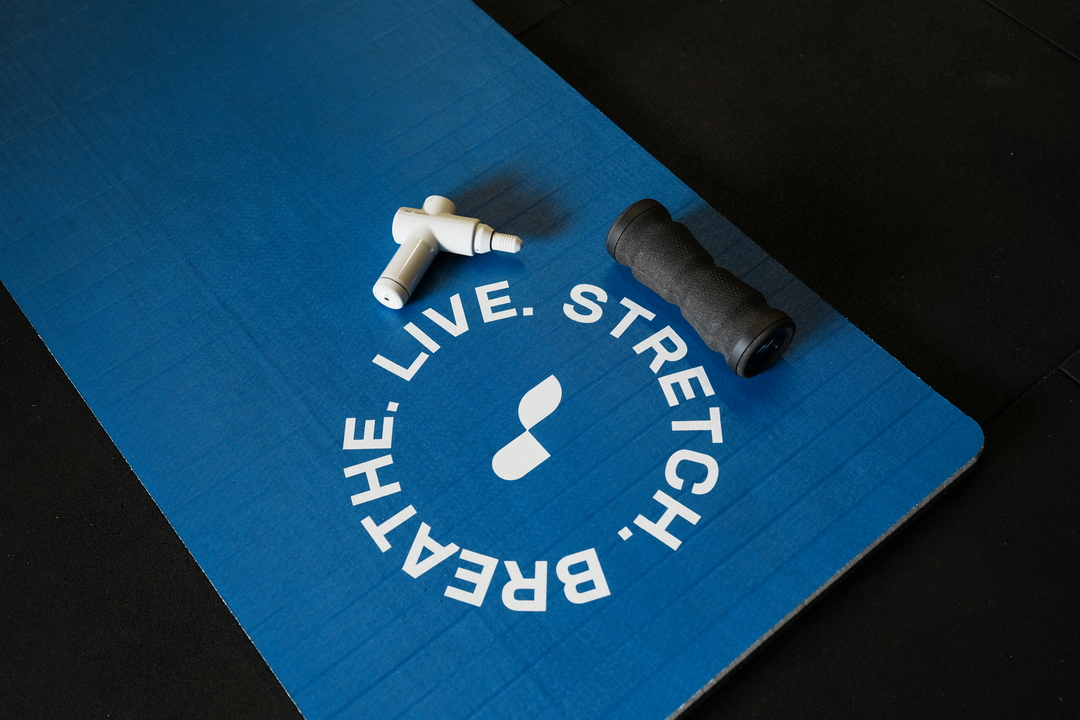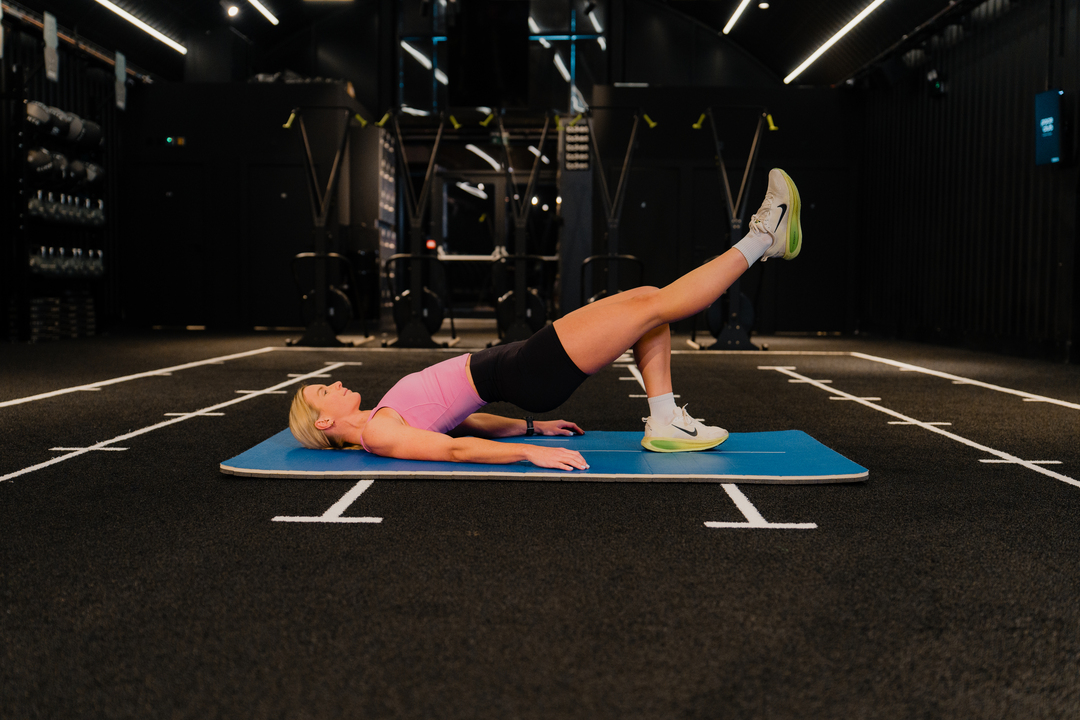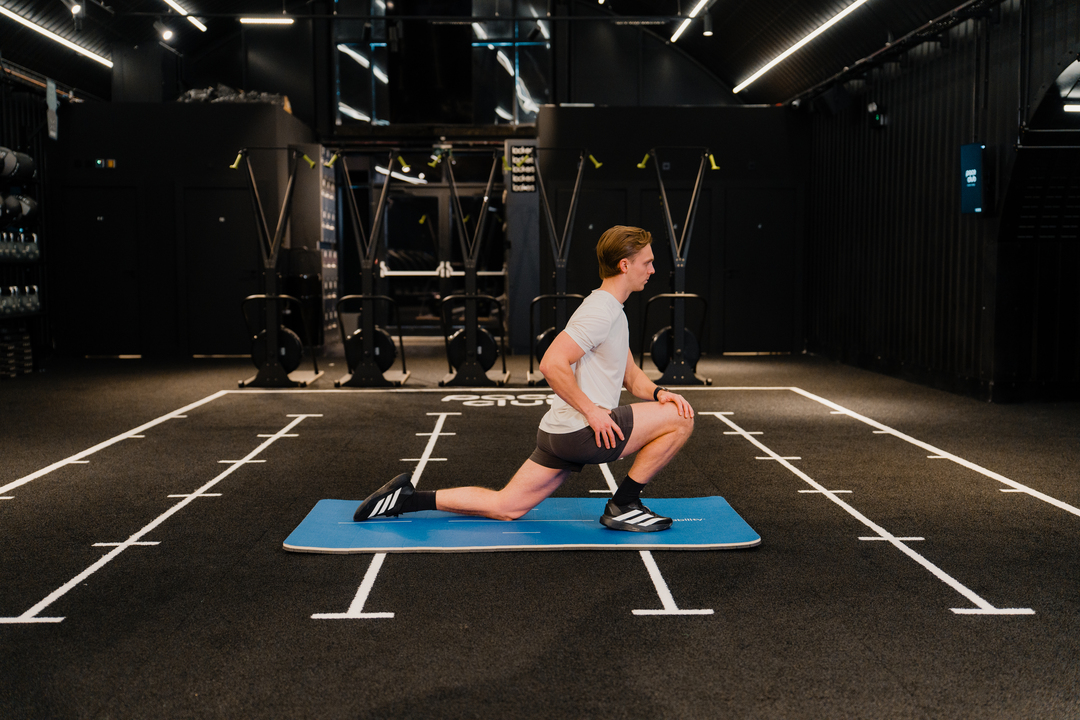A sore, stiff neck can wreck a day: one long stretch at the screen or a bad pillow, and turning your head becomes a chore. This post in Stretching Routines for Stiffness outlines realistic recovery times, targeted neck stretches, posture cues, and simple home exercises so you can quickly relieve neck pain, regain comfortable movement, and prevent stiffness from returning, all with straightforward, practical steps you can do on your own. For faster relief, you can also explore some of the best stretching excercises that target the neck and shoulders to ease tension and restore mobility.
To make those steps easy to follow, Pliability's mobility app guides you through short neck routines, range-of-motion drills, self-massage tips, and ergonomic reminders. Hence, relief becomes part of your daily routine.
How Long Does a Stiff Neck Last

The duration of your stiff neck depends on the cause of the stiffness. It can settle in a few hours or linger for weeks or months. A stiff neck from sleeping poorly usually sits on the low end and may be gone by the next day.
Muscle strain or tension resulting from an awkward position or brief overuse typically resolves within a few days. If an injury, repetitive strain at work, or ongoing poor posture causes the stiffness, it can return regularly or become a long-term problem.
Acute Neck Pain and Typical Recovery Times
Acute neck pain typically results from a sudden, awkward movement or an uncomfortable sleep position. That type of neck stiffness and pain most often clears up without treatment within a few days. If the pain follows a sharper injury, it may last a few weeks and flare after heavy activity or a repeat strain.
Chronic Neck Pain and The Role of Stress
When neck pain persists for months, clinicians refer to it as chronic neck pain. Psychological stress commonly appears in people with chronic neck pain, and stress can keep muscles tight and slow recovery. Chronic neck stiffness often needs a broader plan that addresses movement, anxiety, and daily habits.
When To Be Concerned About a Stiff Neck
Seek professional care if the pain does not improve, gets worse, follows a serious injury such as a car accident, or comes with numbness, weakness, fever, or trouble swallowing. These signs suggest a need for medical evaluation rather than self-care.
How Inflammation Affects Recovery Time
Inflammation slows healing. When neck muscles or soft tissue are inflamed, expect a more extended recovery period. Managing inflammation early can help: use ice during the first 48 hours to reduce swelling, then apply heat to increase blood flow and relax tight muscles.
Posture and Daily Activities That Prolong Stiffness
Poor posture while sitting at a computer or looking down at a phone places a constant load on the neck and delays recovery. Repeated overhead work, heavy lifting with poor form, or repetitive neck movements can lead to daily stiffness. Taking breaks, adjusting the monitor height, and lifting with better technique can reduce strain and shorten recovery time.
Cause of the Stiffness: Why The Diagnosis Matters
A simple muscle strain behaves differently from a disc or nerve problem. Muscle tension usually improves in days. A soft tissue injury from an accident, a sprain of ligaments, or damage to spinal structures can last much longer and may need physical therapy or imaging.
Self-Care and Rest That Speed Recovery
Rest from the aggravating activity, a gentle range of motion, targeted stretching, light strengthening, massage, and heat after the first 48 hours all help. Gentle daily movement prevents stiffness from settling in and often speeds symptom relief.
Noninvasive Therapies and Exercises That Help
Low-risk options, such as guided exercise programs, manual therapy, and supervised movement training, can help reduce pain and improve function. Simple neck mobility and scapular strengthening routines support recovery and lower the chance of recurrence.
Supportive Pillow Evidence and Sleep Changes You Can Make
Using a viscoelastic memory foam pillow can enhance comfort for individuals with chronic neck pain and alleviate symptoms, according to study results. Try a pillow that keeps your head aligned with your spine, and avoid sleeping positions that strain your neck.
Common Questions People Ask: Quick Practical Steps
If you slept awkwardly, it was hours per day. If you strained it at work, it may take days to weeks to recover. If you experience recurring problems with your posture or an injury, it can become a long-term issue.
What Speeds Recovery?
Ice, then heat; gentle stretches; short walks; posture adjustments; and a supportive pillow.
Factors That Affect How Long a Stiff Neck Lasts: Clear Checkpoints
- Cause of the stiffness: Muscle strain tends to be short-lived; injury or structural problems can last much longer.
- Level of inflammation: More swelling delays healing; early application of ice helps limit that.
- Posture and daily habits: Constant forward head posture or repetitive tasks extend the recovery period.
- Self-care and rest: Avoiding aggravating activities and using targeted care usually leads to faster improvement.
Practical Question: What If It Keeps Returning?
If stiffness returns daily despite good home care, consider an evaluation that assesses work setup, exercise habits, and stress management. Persistent or recurrent neck stiffness often responds to a comprehensive plan that includes movement training, posture correction, and lifestyle modifications.
Related Reading
- Why Do I Have Trouble Walking After Sitting
- Why Am I Sore After Stretching
- What Do Tight Muscles Look Like
- Why Do Muscles Get Tight
- Why is Hip Mobility Important
- How Can Stiff and Tight Muscles Result in Back Pain?
- Why is My Back So Stiff
- Why Are My Shoulders So Tight
- How to Prevent Morning Stiffness
When Is a Stiff Neck Serious?
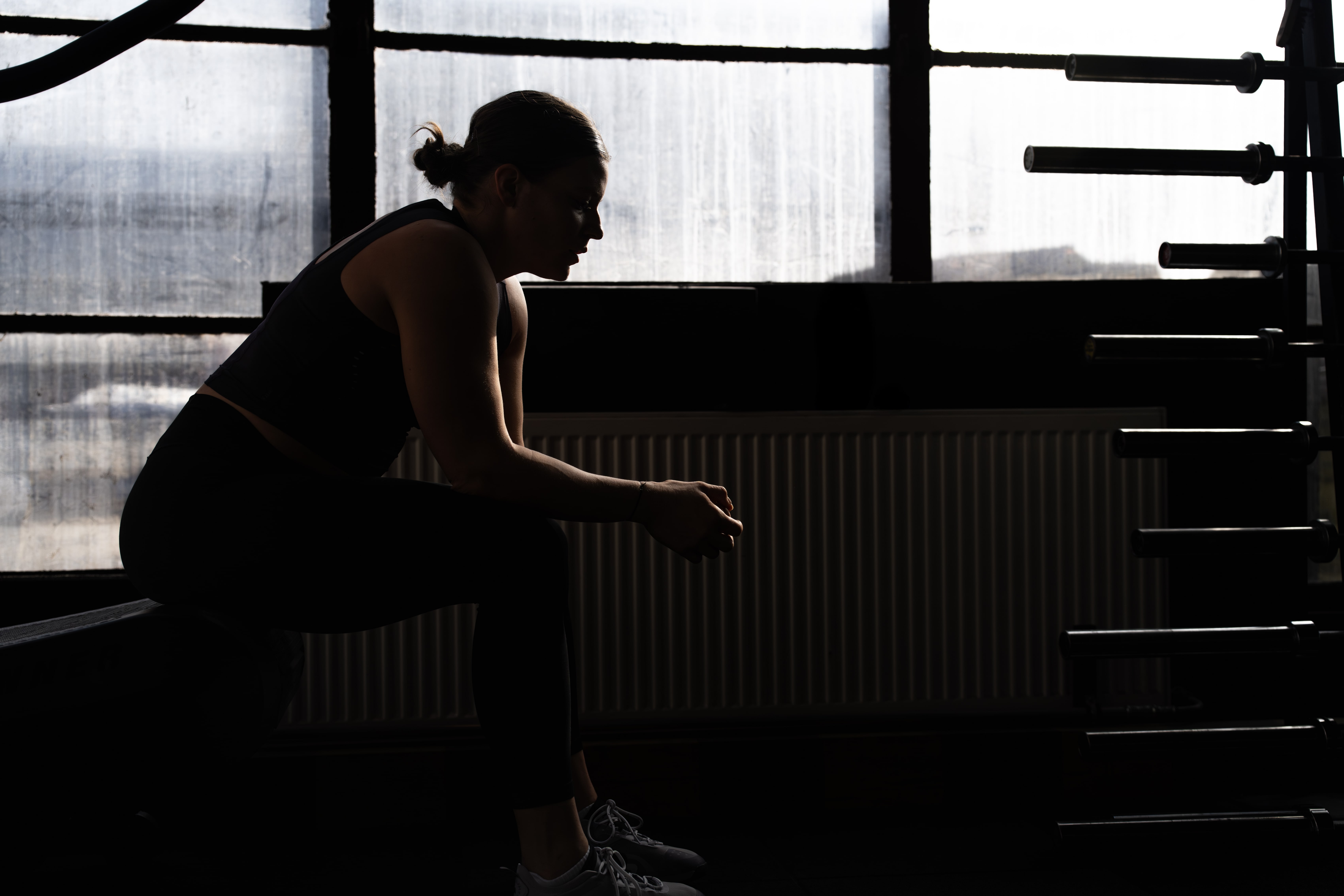
Most neck stiffness clears up within a week or two. Acute neck pain from muscle strain, poor sleep position, or short-lived inflammation often eases with rest, gentle motion, and simple home care.
Ask yourself how long your neck has been stiff and whether it improves with basic remedies. If stiffness persists for two weeks or longer with little to no improvement, schedule an appointment with a clinician to investigate potential underlying causes that may require further evaluation.
Why Some Stiff Necks Last Longer: Causes that Extend Recovery Time
Muscle strain usually heals within a few days. Still, longer-lasting neck pain can result from arthritis in the cervical spine, a herniated disc pressing on a nerve, chronic poor posture, or ongoing tension.
Infection and inflammatory diseases sometimes produce a longer course. Factors that delay recovery include repeated aggravation at work or home, poor sleep, cigarette use, and untreated nerve irritation.
When to Get Help for a Stiff Neck: Red Flags That Mean See a Doctor
Most cases of acute neck stiffness can be managed at home with rest, ice, heat, gentle stretching, and over-the-counter pain medicine. Still, certain red flags require prompt medical attention. If you notice any of the items below, please contact a healthcare provider immediately.
Persistent or Worsening Symptoms That Need Evaluation
If your neck remains stiff or worsens despite rest, ice, and regular over-the-counter pain relievers, schedule a medical review. Persistent or worsening symptoms may indicate a hidden structural problem in the spine or soft tissues that requires imaging and targeted treatment, rather than additional home care. If pain limits your daily activities or sleep and does not show signs of improvement, see your doctor.
Severe Pain or Trouble Moving the Neck: When to Act Fast
Severe neck pain, marked stiffness, or an inability to turn the head freely may suggest a serious injury or condition. If severe pain follows trauma such as a car crash, fall, or sports hit, go to the emergency department to rule out fracture, dislocation, or spinal cord compression. Do not try to force movement after a hard impact.
Neurological Symptoms You Must Not Ignore
Symptoms such as numbness, tingling, weakness in the arms or hands, or pain that shoots down a shoulder or arm often indicate nerve compression or irritation in the cervical spine. Problems with balance, coordination, or new difficulty walking can signal that the spinal cord is involved. These neurological signs need prompt evaluation to prevent permanent nerve injury.
Other Red Flags: Fever, Nausea, Confusion, Weight Loss, Ongoing Headache
Watch for any combination of these symptoms together with neck stiffness:
- Fever
- Nausea or vomiting
- New confusion or sudden mood changes
- Unexplained weight loss
- Persistent headaches
- Trouble swallowing or breathing
- Visible swelling or tenderness in the neck
Pain that does not respond to regular painkillers also raises concern. If any of these occur, seek medical attention promptly.
Meningitis and Serious Infections: When a Stiff Neck Can Be an Emergency
In rare cases, a stiff neck can be a symptom of meningitis, an infection that inflames the membranes surrounding the brain and spinal cord. Meningitis usually comes with fever and changes in mental state.
Research shows that while only 41 percent of patients exhibit all three signs —neck stiffness, fever, and confusion —about 70 percent will have at least one of these symptoms. If you suspect meningitis, get urgent medical help.
What to Tell Your Clinician: Key Details That Help Diagnosis
Be prepared to describe the timing of your symptoms when you call: when the stiffness began, how long it lasts, whether it is constant or intermittent, what triggers it, and any recent injuries or infections.
Note any radiating pain into arms or hands, changes in sensation, fever, nausea, or difficulty with balance. Bringing this information speeds diagnosis and helps your clinician decide whether imaging, blood tests, or urgent referral are needed.
Practical Next Steps: Safe Self-Care Until You See a Provider
While you wait for care, use a gentle range of motion exercises, apply heat or ice for 20 minutes at a time, sleep with modest neck support, and avoid heavy lifting or repetitive overhead work. Take over-the-counter pain medicine as directed if it helps. If symptoms escalate, get immediate medical attention rather than persisting with home remedies.
Related Reading
- Stiff Feet in the Morning
- How Can Poor Posture Result in Back Pain?
- Stiff Feet in the Morning
- Why Does My Knee Feel Stiff
- How to Treat Stiff Fingers in the Morning
- Joint Stiffness in the Morning
- What to Do for Tight Muscles
- Why Are My Calf Muscles So Tight
- How to Loosen Tight Lower Back Muscles While Standing
- How to Loosen Tight Muscles in Legs
Self-Care Tips for a Stiff Neck

Keep your head stacked over your shoulders instead of jutting forward. Sit tall, with shoulders relaxed and ears roughly over your shoulders. Raise the device or use a stand so that your eyes are level with the top of the screen. Ergonomic desk chairs and standing desks reduce strain by supporting your lower back and keeping your spine aligned. Small changes help:
- Move the monitor up
- Bring your keyboard closer
- Set your feet flat on the floor
Workplace Setup That Stops Strain Before It Starts
Adjust your chair so your knees are slightly lower than your hips and your lower back has support. If you use a standing desk, alternate between sitting and standing every 30 to 60 minutes.
Position the monitor so that the top of the screen is at eye height and the screen is approximately an arm's length away. Use a headset for long calls to avoid cradling the phone between your neck and shoulder.
Sleep Smart: Pillows and Positions That Ease Neck Pressure
Back and side sleeping reduces neck stress compared with stomach sleeping. A memory foam pillow with a cervical shape often keeps the neck in line with the spine and can ease stiffness.
Try a pillow that fills the gap between your shoulder and neck so your head does not tilt up or down. Try the pillow for a few nights and make minor adjustments to the thickness until your neck feels properly supported.
Safe Stretching and Simple Yoga to Strengthen Neck Muscles
Start slowly. A gentle range of motion helps restore flexibility. Try these moves:
- Chin tucks to lengthen the back of the neck
- Side bends, bringing the ear toward the shoulder
- Slow rotations, looking over each shoulder
- Forward nods to stretch the back of the neck
Hold each stretch 15 to 30 seconds and repeat two to three times. Add shoulder rolls and upper back stretches to reduce tension that pulls on the neck. If pain increases with any stretch, stop and try a softer version or skip it.
How to Use Ice and Heat Correctly for a Stiff Neck
For the first 48 hours after a sudden onset, use ice to reduce inflammation. Apply an ice pack wrapped in a thin towel for 10-15 minutes, several times a day. After 48 hours, switch to heat to increase blood flow and relax tight muscles.
Use a warm pack or warm shower for 15 to 20 minutes. Never apply heat or ice directly to bare skin, and avoid heat if the area appears swollen or irritated.
Gentle Stretching Steps You Can Do at Home Right Now
Sit or stand tall. Breathe slow and steady. Example routine:
- Chin tuck: Tuck your chin straight back and hold for 5 to 10 seconds, repeat 8 to 10 times.
- Ear to shoulder: Tilt right, hold 20 seconds, then left, repeat twice on each side.
- Rotation: Slowly look right, hold 10 seconds, then left, repeat three times.
Move slowly and aim for motion without sharp pain.
Massage Options: Hands-On and Self Massage
A trained therapist can work the upper trapezius and levator scapula muscles that often cause neck stiffness. For self-help, press into tight spots with your fingertips or use a tennis ball between your shoulder and a wall for 1-2 minutes while breathing. Gentle circular strokes along the base of the skull and down the neck increase circulation and reduce tightness.
Keep Moving: Rest Without Full Inactivity
Rest is beneficial, but complete inactivity can cause tissue stiffness. Walk short distances, perform gentle neck range-of-motion exercises every few hours, and avoid heavy lifting until the pain subsides. Regular small movements help keep blood flowing and speed up recovery. Try a brief 2 to 5-minute walk every hour and repeat light stretches during the day.
Screen Breaks and Posture Habits to Reduce Recurrent Stiffness
Set a timer to take a break every 20-30 minutes. During breaks, stand, roll your shoulders, and look out the window to change your head position. Hold your phone at eye height when texting to avoid sustained neck flexion.
When Over-the-Counter Pain Relief Can Help
Acetaminophen or non-steroidal anti-inflammatory drugs, such as ibuprofen or naproxen, can help ease pain and reduce inflammation for a few days. Follow dosing on the package and check with a clinician if you have stomach issues, heart disease, kidney problems, or take blood thinners. Use medication to allow safe movement and stretching, rather than as a way to push through hurting joints.
How Long Will a Stiff Neck Last and What to Expect
Many people experience improvement within a few days to two weeks with home care. Acute neck stiffness from sleeping awkwardly or short-term strain often eases in a few days. Some cases take several weeks to settle.
If symptoms persist for two to six weeks or worsen, the condition may be prolonged or chronic, and you should consult a clinician. Seek urgent care if you have a fever, numbness, weakness in an arm or leg, severe, unrelenting pain, or new bladder or bowel problems.
When to See a Professional So You Don’t Wait Too Long
If pain follows a fall or trauma, if you have pins and needles or weakness, or if pain steadily worsens despite home care, get evaluated. A healthcare provider can recommend imaging, physical therapy, prescription medication, or injections, depending on the cause.
Quick Safety Notes and Red Flags While You Care for Your Neck
Stop any movement that produces sharp or shooting pain. Avoid heavy lifts and repetitive overhead work while stiff. Use heat, ice, gentle motion, and over-the-counter medication as needed. If you develop a fever, severe headaches, numbness, or arm weakness, contact a healthcare professional without delay.
Improve Your Flexibility with Our Mobility App Today | Get 7 Days for Free on Any Platform

Pliability offers a fresh take on yoga, designed for performance-oriented individuals and athletes. The app hosts an extensive library of high-quality videos to improve flexibility, aid recovery, reduce pain, and enhance range of motion. You receive daily, updated custom mobility programs that adjust to your progress, along with a body scanning feature that pinpoints mobility issues in the neck, shoulders, and thoracic spine.
Use Pliability to add targeted neck and upper back sequences to your warm-up, cooldown, and recovery sessions so you attack the root causes of stiffness. Sign up today to get 7 days absolutely free on iPhone, iPad, Android, or on our website. Our mobility app helps improve flexibility, aid recovery, reduce pain, and enhance the range of motion.
Related Reading
- Can Tight Hips Cause Knee Pain
- How to Loosen Tight Forearm Muscles
- Why Do My Legs Feel Tight and Heavy
- Why Does My Forearm Feel Tight
- What Causes Stiff Neck
- How to Loosen Tight Jaw Muscles
- Why Do My Hands Feel Tight
- How to Loosen Tight Hips and Lower Back
- How to Loosen Tight Scalp Muscles
